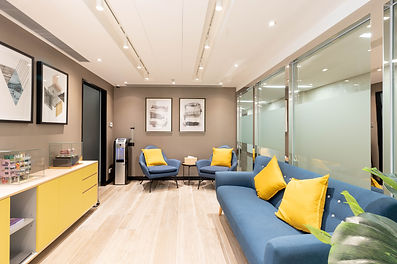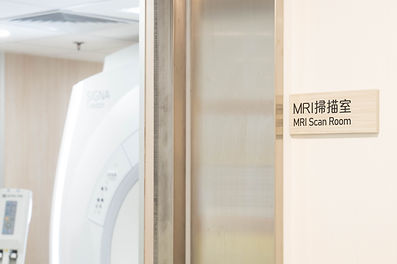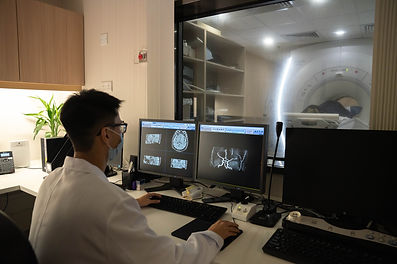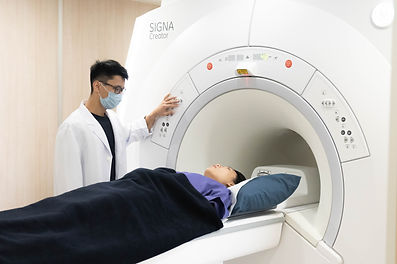Preparation for MRI





1. Unless otherwise specified on the appointment sheet, you can eat, drink and take drugs prescribed by your doctor as usual, except if you are taking an abdominal exam.
2. Eye make-up should be avoided.
3. Please inform our staff if you have the following items and conditions because they are potentially hazardous and may interfere with the MRI examinations by producing artifacts. i. If you have implants or foreign bodies inside your body such as:
- Cochlear implants
- Internal shunt / programmable VP shunt
- Cardiac pacemaker
- Dentures
- Prosthetic heart valve
- Intravascular coils, filters and stents
- Surgical clips
- Metallic foreign bodies
- Insulin pump
- Intrauterine contraceptive device
- Hearing aid
- Orthopaedic devices (e.g. pins, nails, screws)
4. Please remove any loose ferromagnetic items you may be carrying such as metallic objects (e.g. glasses, wristwatch, necklace, safety-pin, hair-slide), and items which may be damaged by the magnetic field (e.g. credit cards, Octopus card) prior to entering the magnet room. A locker will be provided for you to secure your personal belongings.
5. Pregnant woman should avoid taking an MRI examination during the first 3 months of her gestation.
6. For examinations with intravenous contrast medium, the latest creatinine levels must be provided prior to the examination or you may be required to check your creatinine level at our centre.
7. Please bring previous films and reports (if any) for reference.
Preparation before contrast medium injection
1. A written consent is required.
2. Please inform your doctor and our medical staff of history of any allergy to specific food or drug, previous reaction to contrast medium, history of asthma, urticaria, eczema and rhinitis.
3. For previous reaction to contrast medium, if needed please follow the instruction for steroid protection before examination.
4. For previous reaction to contrast medium, fast for at least 4 hours before examination, except usual medication.
5. For diabetic patient, please stop Metformin consumption 24 hours before examination.
6. For patient aged 65 or above / diabetic and/or hypertension patient, please provide latest creatinine blood level report or have it checked at our centre.
Procedure
1. The examination time varies from 30 minutes to 2 hours. You are required to keep still during the examination. Therefore, children and infants may have to be sedated by medication.
2. Ear plugs or headphone will be provided to protect you from the noise generated by the machine during the examination.
3. For the sake of safety, an intercom system is installed inside the examination room so that you can communicate with our staff during the examination. In addition, an emergency button or ball which you can hold and press for assistance is also available.
4. In some examinations, magnetic resonance imaging contrast medium will be administered in order to show results more clearly. Patients may have side effect including headaches, vomiting and nausea. The incidence of adverse reactions to MRI contrast is low, occurring every 1/40,000 injections. Most reactions are mild and transient, with skin reactions being the most frequently. Severe, life-threatening anaphylactoid reactions to MRI contrast are rare. The death rate of GBCAs is 2.7 per 1 million administrations.
5. Rarely, renal failure patients receiving gadolinium contrast as associated with Nephrogenic Systemic Fibrosis (NSF) and deaths have been reported.
After examination done
1. Normally the examination will not cause any discomfort and you can return to work as usual after the examination. You can eat and drink normally.
2. Drink plenty of water is recommended after the examination as it helps remove the from your body.
3. For diabetic patient, please stop Metformin consumption for 48 hours after examination.



